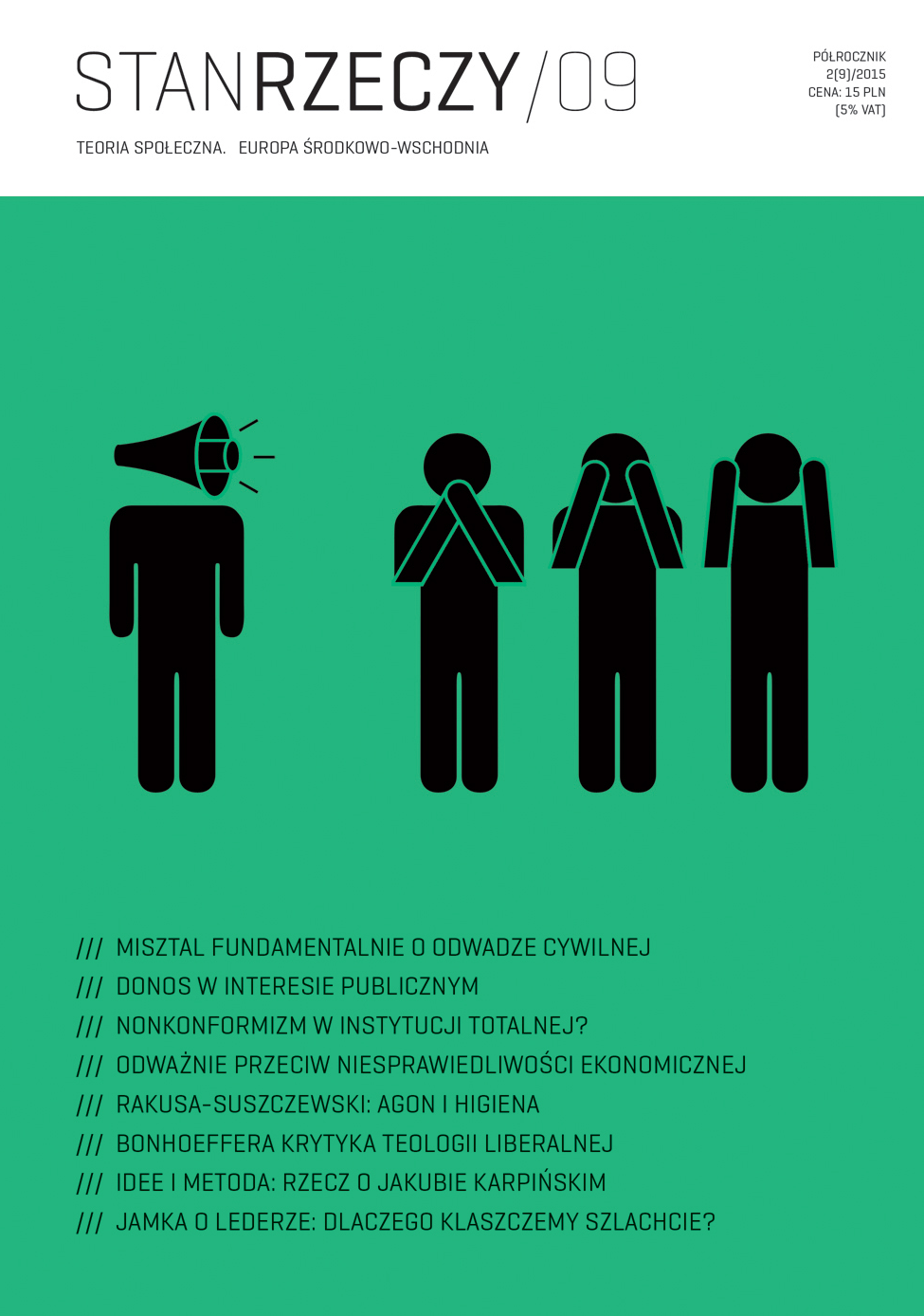Agon i higiena. Nieposłuszeństwo obywatelskie a sfera publiczna
Agon and hygiene: civil disobedience and the public sphere
Author(s): Mikołaj Rakusa-SuszczewskiSubject(s): Politics / Political Sciences, Philosophy, Social Sciences, Political Philosophy, Civil Society, Sociology, Politics and society, Sociology of Politics
Published by: Wydział Socjologii Uniwersytetu Warszawskiego
Keywords: civil disobedience;civil courage;public sphere;self;Hannah Arendt;Helmuth Plessner;social movements
Summary/Abstract: „Odwaga cywilna” tak jak „nieposłuszeństwo obywatelskie” jest formąaktywnego upominania się o określone zasady: porządek obyczajów, uczciwą władzę i poszanowanie prawa. Obie postawy cechują nie tylko nonkonformizmi sprzeciw, lecz także chęć obrony jakiegoś lepszego, uczciwszegoczy piękniejszego świata. Obie znoszą podział między „dobrym człowiekiem”a „dobrym obywatelem”. Ponieważ każda z nich zawiera w sobierównorzędne elementy społecznie zaangażowanej niezgody i troski, ichwyjaśnienie wymaga wyraźnie zdefiniowanej koncepcji sfery publicznej.Stawiamy tezę, że jest to w istocie konieczne, aby uznać społeczną i etycznądoniosłość i sens każdej z tych postaw. Żeby zilustrować, na czym możepolegać taka interpretacja, odniesiemy się do dwóch odmiennych koncepcjisfery publicznej: pluralistyczno-agonicznej Hannah Arendt i ceremonialno-higienicznejHelmutha Plessnera.The main thesis of this article is that related concepts and attitudes of„civil disobedience” and „civil courage” are comprehensible only throughthe idea of public sphere. To illustrate this rule, we describe two utterly differentviews of the public sphere: as a space of Agon and rivalry (Arendt),where disobedience and courage regenerates a motionless political process,as well as an environment of hygiene and correctness, where acquiescenceto these attitudes is at least limited (Plessner). This rule applies to all interpretationsof this issue, as illustrated by an example of John Rawls. Inother words, whenever the aforementioned issues appear, the problem ofthe public sphere occurs as well. Secondly, the idea of what it is sends usback to the sources of the Self. What might seem to be a problem of socialethics turns out to be more a subject of political philosophy and anthropology.Finally, we believe that this rule might be applied as well to socialmovements that frequently initiate activities of a civil disobedience. Theirfunctions and role is closely linked to the idea of the public sphere.
Journal: Stan Rzeczy
- Issue Year: 2015
- Issue No: 9
- Page Range: 65-84
- Page Count: 20
- Language: Polish

